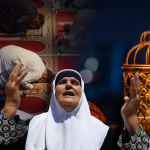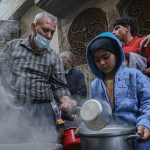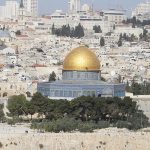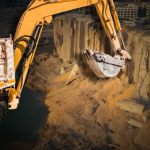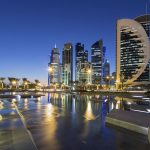Lebanon : The opposition endures intimidation In Hezbollah-controlled south
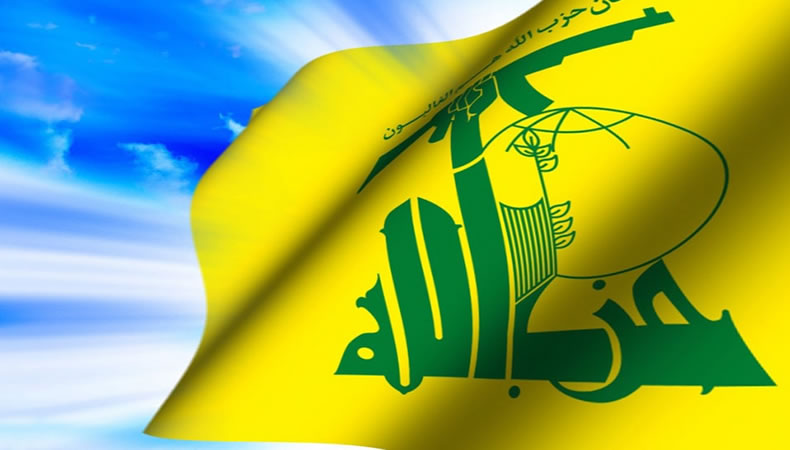

On Saturday, opposition candidates in Lebanon, including university professors, a physician, and an Arabic teacher, planned to rally with their supporters near Sarafand in the south. They had booked a restaurant down a side road off a seaside highway to officially unveil their electoral list — people are fasting because of Ramadan.
The country is in deep upheaval about three years into its worst-ever economic crisis, and the opposition wants to earn a record number of seats in Parliament. In the previous few weeks, opposition lawmakers held talks in the same restaurant without incident. This time, though, a number of guys gathered at the entrance to the road that runs down to the restaurant approximately an hour before the launch. They allegedly targeted a cameraman, a DJ, and someone tasked with erecting the Lebanese flag.
Related Posts
A limited group of people, including The National employees, were allowed to enter the restaurant. However, the mood began to deteriorate once more. Men allegedly assaulted witnesses’ automobiles and prevented scores of people on buses from attending the march, according to witnesses. As they moved down the side road, a dozen guys honed in on two others, beating one to death. Before their assailants attacked the eatery with rocks, they managed to flee, bloodied and scratched.
Those who were unable to make it waited beside the roadway as the army attempted to negotiate their passage. Candidate Hisham Hayek was one of them. A guy in a black T-shirt and pants sprayed live fire at him twice in rapid succession as he peeked down beyond scrubby bushes to see what was going on, said Dr Hayek, a surgeon. There were no injuries. Soldiers are seen moving the gunman away in a widely circulated video of the incident.
The two battered young men, in their early twenties, sat in shock under a tree for a long time. Fadia, a friend whose phone was taken from her as she was trying to video the event, kept an eye on them. “They said we couldn’t go in.” “Who are you to tell me I can’t?” she recalls telling them. The episode, according to opposition members, proves that they are popular enough to scare Lebanon’s strong “Shiite duo”: Hezbollah, which is sponsored by Iran, and Amal, which is led by Nabih Berri, the Speaker of Parliament since 1992.
Both parties fought back against widespread protests that erupted in late 2019 as a result of the country’s economic collapse. They are competing together in the South 2 constituency on a list that includes important MPs from both factions, including Mr Berri. Irking parties in power is a success in and of itself for opposition candidates, who realize they have a little chance of capturing more than one of South 2’s seven seats. If they do, Dr. Hayek, a Roman Catholic Christian standing for the single non-Shiite position, is the most likely winner.
Due to Lebanon’s sectarian power sharing arrangement, all candidates, even those pushing for a secular state, must run on a seat that belongs to their faith group. “They want to get rid of us because we are a source of danger,” Dr. Hayek added. “They don’t want us to open people’s eyes,” says the narrator. We want a nation where citizens are treated equally and have access to their rights.”
On Saturday, all individuals inside the restaurant privately accused their assailants of being Amal’s. One of the individuals blocking the restaurant’s entry stated that he opposes everyone who opposes Mr Berri, but was shushed by an older man. Amal went on to deny any participation subsequently.
South Lebanon is not the only place where opposition candidates face violence. Similar instances in Beirut were recently reported in The National. South Lebanon, on the other hand, is being scrutinized more closely since Hezbollah and Amal claim to represent the whole majority-Shiite community while attempting to silence dissident views. The area is Hezbollah’s historic stronghold, and it is here that the group made its name opposing Israel’s occupation from 1985 to 2000.
“A breach in their grip on the region would be represented by just a handful of opposition candidates making it to Parliament,” said Naji Abou Khalil, political director of the National Bloc, a secular opposition group. They’ve been labeled as traitors. On Saturday, while Dr. Hayek waited on the highway, those who had made it inside delivered statements accusing political parties of attempting to terrorize the local community. “In this location, free expression is not tolerated,” Shiite contender Ali Khalifeh told The National. “It’s heartbreaking.”
Hezbollah frequently accuses its opponents of working for Israel, with whom Lebanon remains technically at war. While opposition members frequently criticize Amal, they must walk a careful line between not explicitly challenging Hezbollah’s so-called “historic” “resistance” to Israel and criticising their economic and social policies since joining the government in 2005. “They battled to free the nation, and now they’re involved in the whole political game, which is corruption,” said Hatem Halawi, an independent Shiite candidate from Tyre, a university professor of computer sciences.
Lebanon is suffering from “probably one of the top three most catastrophic economic collapses globally since the 1850s,” according to the World Bank, which is being “orchestrated by the country’s elite that has long seized the state and lived off its economic rents.” Mr. Halawi, 42, was careful when discussing Hezbollah’s contentious armament — the party being the only one to preserve its weapons after the civil war ended in 1975-1990 so that it could fight the Israeli occupation. “If you wish to oppose Hezbollah’s weaponry, you must provide an alternative.” He answered, “A country, an army that can defend us.”
“We need to establish a discourse that gives people courage,” said Ali Mourad, a Shiite candidate in the neighboring district of South 3 who is a member of the October 17 Commune, a secular political organization founded out of the 2019 demonstrations. “When Hezbollah said the elections were their political July war, that means everyone who opposes them is a traitor,” Mr Mourad said, referring to a speech given by a top Hezbollah official in February in which he compared the upcoming parliamentary election to the group’s brief 2006 war with Israel.
Mr Mourad, a 41-year-old law professor at Beirut’s Arab University, charged Hezbollah and other sectarian political organizations with undermining the state while pretending to support a strong state to defend the country. “It’s attempting to escape its obligations.” The South’s public policies have been a fiasco. “They operated clientelistic networks, created schools and hospitals that we didn’t need, and oversaw massive land robberies,” Mr Mourad added.
A request for an interview with Hezbollah’s candidates in the South was not responded to by the party’s media office. Several western nations, notably the United States, have designated the group as a terrorist organization. There have been no arrests, and there has been no accountability. Along with Amal, Hezbollah is the most conspicuous political group on South Lebanon’s roadways and highways. The yellow banners of Hezbollah candidates alternate with bigger photos of Mr Berri, Amal’s 84-year-old leader, with strong phrases reading “We remain, we defend, and we create.”
Attendees fled by automobile through a back route after Saturday’s conference near Sarafand finished. Those who departed on foot were escorted by the army, which had deployed at least 15 military trucks. Mr Khalifeh rushed into the mob, who had just attacked his supporters minutes before. The men stood there calmly watching him. The army said on Wednesday that the gunman, identified only by his initials, A.K., had been apprehended. Dr. Hayek bemoaned the delayed speed of action against the shooter prior to his arrest.
“What do you anticipate during the elections if someone shoots at innocent people right in front of the army is not sanctioned?” “I’m quite concerned about the safety of individuals who will vote against the system,” Dr. Hayek, 54, added. Fear is still present, along with resistance. The young man who was assaulted as he attempted to walk to the gathering refused to reveal his identity. “They’ll beat me up again if I make a big deal out of it,” he warned. On May 15, however, he stated that he will vote. “Against the system,” he yelled as he walked away, waving his hand. This item has been updated to reflect the suspected shooter’s arrest on Wednesday.

